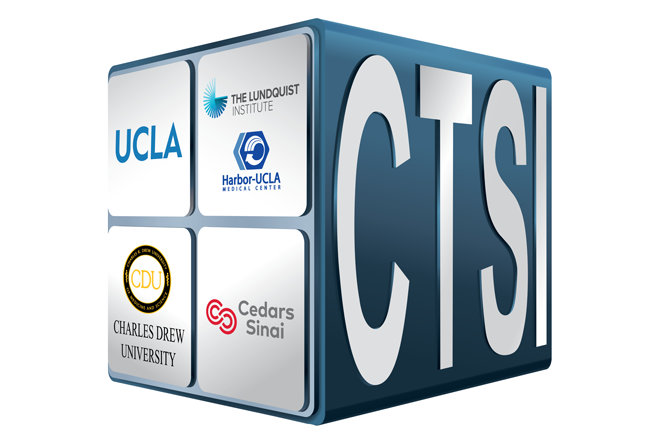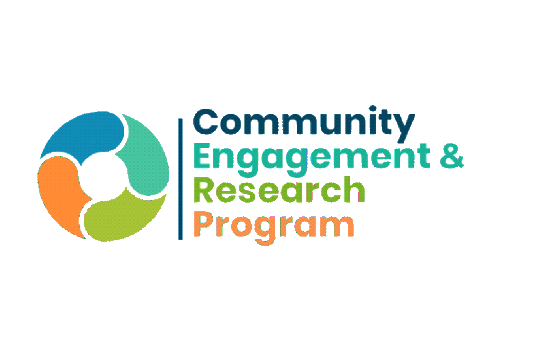Community Partnered Research Awards to Improve Health in Los Angeles County
The Community Partnered Awards aim to foster a better understanding of health through community engagement.


The UCLA Clinical and Translational Science Institute (CTSI) is seeking applications proposing community partnered research projects that foster a better understanding of health through community engagement.
Community engagement is “The process of working collaboratively with and through groups of people affiliated by geographic proximity, special interest, or similar situations to address issues affecting the well-being of those people. It is a powerful vehicle for bringing about environmental and behavioral changes that will improve the health of the community and its members. It often involves partnerships and coalitions that help mobilize resources and influence systems, change relationships among partners, and serve as catalysts for changing policies, programs, and practices.”[1]
Community partners may include organized groups, agencies, public institutions, or community members engaged in health promotion, social justice, or policy making. Community agencies or collaborative organizations and academic partners should be included in all phases of research continuum: study design, needs assessment, planning, implementation, evaluation, and community and academic dissemination.
There are well documented links between places, communities, and health [2-5]. Place-based initiatives aim to improve health, wellbeing, opportunity, knowledge, capacity, environment, or quality of life of a population who live in defined neighborhoods, cities, or rural communities experiencing disinvestment.
| Pilot Award Overview | ||
|---|---|---|
| Grant Length: | 18 months | |
| Grant amount: | $75,000 | |
| Number funded per cycle: | 1 | |
| Funder: | UCLA CTSI |
| Application Timeline | ||
|---|---|---|
| Deadline for Letters of Intent: | 10/25/23 at 5pm | |
| Notification of invitation to submit full proposal: | 11/13/23 | |
| Q&A and Technical Assistance sessions: | TBA | |
| Deadline for Full Proposals: | 1/29/24 | |
| Notification of Awardees: | 4/1/24 | |
| Award Start Date: | 5/1/24 |
Areas of proposed community partnered research may include interventions or exploratory research on health equity, environmental health or climate change; enhancing engagement of under-represented groups in research, policy, or capacity building; or engaging communities in discussing implications of innovations in health care and research (e.g., Artificial Intelligence and Machine Learning). Research proposals should focus on at least one of the below efforts:
- Translational research to understand the impact of the place-based initiatives on physical health, mental health, and social outcomes among a population
- Strategies to improve, enhance, or help a community achieve their own objective of living in a healthier community (e.g., addressing health, wellbeing, opportunity, knowledge/capacity, environment, or quality of life).
In responding to this RFA, the applicants should propose projects that involve engagement and collaboration with community partners, evidenced, for example, by a community-led decision-making process to conduct research that results in science-based knowledge to guide decisions that will better sustain a healthier society and environment. The proposed pilot project should generate results that enable the project team to seek extramural funding for larger scale implementation or further application of the strategies tested in the project (for example, National Institutes of Health [NIH], Patient Centered Outcomes [PCORI], Robert Wood Johnson Foundation [RWJF]or other foundation applications). We encourage participation of diverse community partnerships, including place-based initiatives, other geographic community initiatives, or community collaboratives based on shared common goals or interests.
Applicants will be evaluated on their (a) the relevance of the questions to the residents of LA County, (b) potential evidence to initiate new, or extend existing, partnership(s) with a community or a community-based organization, (c) the scientific approach, research questions, proposed research methods and the relevance of the outcomes evaluated, and (d) the strength of the community engagement and dissemination plans.
Eligibility Information:
- Awards will be made to community-academic research teams working closely with investigators from at least one of the CTSI partner institutions (UCLA, Cedars-Sinai, Lundquist Institute at Harbor-UCLA, Charles Drew University).
- Principal investigator(s) can be community representatives or academic researchers, or co-PIs. A multi-site or multi-sector collaboration is strongly encouraged.
- The full application requires both a community and academic partner budget. Budgets should be submitted from the community organization and academic institution individually, with total costs equaling $75,000.
Required Letter of Intent (LOI)
- The names and affiliations for community and academic collaborators include: Principal investigator(s), co-investigators, and other stakeholders or community organizations [no limit]
- Project aims or research questions [250 words limit]
- The approach and research methods proposed to develop, implement and evaluate the project [250 words limit]
- The expected impact of the project on health outcomes (or related outcomes) for community and stakeholders [250 words limit]
- NIH Biographical Sketch or resume/CV for lead academic investigator and lead community partner investigator:
- Academic personnel: (Use Biographical Sketch Format Page.) Applicant must submit a current NIH biosketch for themselves and the Senior/Key Personnel and/or Other Contributors using the current NIH biosketch format. In Section A of the Personal Statement, there must be a description of the person’s experience and qualifications that make them particularly well-suited for their role in this project.
- Community partners and stakeholders may submit a resume/CV with their role/expertise
Submission:
LOIs must be submitted by 10/25/23 at 5pm.
Questions can be addressed to Dale Slaughter, daslaughter@mednet.ucla.edu.
Next Steps: LOIs will be chosen for further consideration within two weeks of LOI submission. At that time, selected applicants will receive instructions for the full application, feedback on the proposed project and information for a Q&A session. Representatives from the CTSI will be available at the Q&A session to advise applicants as they assemble research teams and identify resources that will be needed for their proposed projects.
References:
- CDC. Principles of community engagement. In. Atlanta, GA: Centers for Disease Control and Prevention; 1997.
- McGowan, V.J., Buckner, S., Mead, R. et al. Examining the effectiveness of place-based interventions to improve public health and reduce health inequalities: an umbrella review. BMC Public Health 21, 1888 (2021).
- Dankwa-Mullan I, Pérez-Stable EJ. Addressing health disparities is a place-based issue. American journal of public health. 2016 Apr;106(4):637-9.
- Kong AY, Zhang X. The use of small area estimates in place-based health research. American Journal of Public Health. 2020 Jun;110(6):829-32.
- Crosby A, Vanni I. Place-based methodologies in transdisciplinary research. Integration and Implementation Insights blog. March 29, 2022. Accessed August 22, 2023.
This RFA references practices and recommendations from:
Park A, Castro P, Seifer SD. Promising Practices: Community Engagement in Research Funding Announcements and Peer Review Criteria. Seattle, WA: Community-Campus Partnerships for Health, 2014.
About UCLA CTSI
The UCLA Clinical and Translational Science Institute (CTSI) is a research partnership of UCLA, Cedars-Sinai Medical Center, Charles R. Drew University of Medicine and Science and the Lundquist Institute for Biomedical Innovation at Harbor-UCLA Medical Center. Its mission is to bring biomedical innovations to bear on the greatest health needs of Los Angeles—one of the most ethnically and economically diverse counties in the United States. Our vision is to catalyze research that translates discoveries into tangible improvements in health care, disease prevention and health in our community. The UCLA CTSI is one of more than 50 research hubs supported by the Clinical and Translational Sciences Award (CTSA) program of National Center for Advancing Translational Sciences (NCATS). NCATS—one of 27 Institutes and Centers at the National Institutes of Health (NIH)—was established to transform the translational process so that new treatments and cures for disease can be delivered to patients faster.



